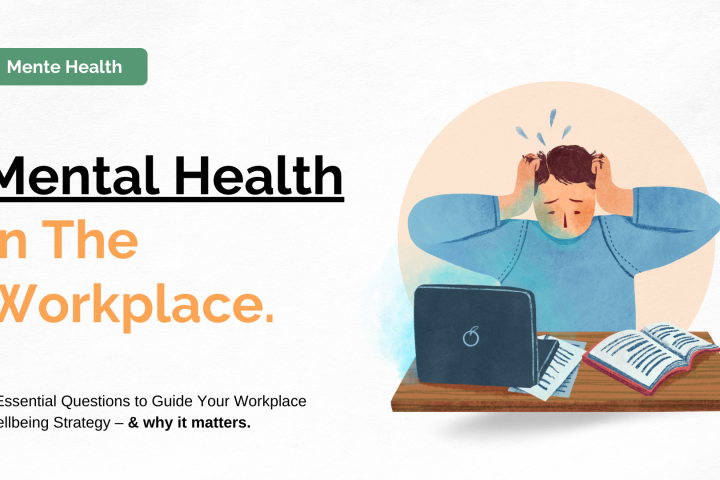We know that making sure your team is in good spirits and not bogged down by stress is crucial. Neglecting the wellbeing of your staff isn't just bad for them; it can also knock the whole business sideways.
But how do you make sure you're actually doing the job right?
In this blog, we've got seven questions that'll help you take a good, hard look at how you handle stress and mental health at work.
1) Is Employee Wellbeing a Genuine Priority?
Probe the depths of your organisation's ethos. Does it truly champion employee wellbeing or is it merely a fleeting trend? For a strategy to truly flourish, it requires more than just lip service—it mandates unwavering dedication, visibly echoed from the senior leadership down to the grassroots. A culture woven with genuine care for wellbeing is the cornerstone of a thriving business.
2) Is Your Strategy Backed by Data?
A strong employee wellbeing plan combines smart planning with hard data. Have you conducted a detailed stress risk assessment to identify common organisational stress factors? This kind of analysis provides important information, helping you create a strategy addressing your employees' specific challenges.
3) Are You Providing Adequate Training?
Education is key to building mental resilience. Is your organisation actively sharing information to create a more informed culture? Training that covers stress management, work-life balance, and overall wellbeing is essential. Importantly, these resources should be accessible to everyone, regardless of their position or department.
4) Is Your Strategy Attuned to Your Workforce's Diversity?
Workplace wellbeing cannot adopt a one-size-fits-all approach. Every organisation is a tapestry of unique individuals, each bringing their own set of aspirations, experiences, and challenges. Does your strategic framework embrace and champion this rich diversity? Personalised solutions, attuned to each individual's specific needs, are often the most impactful and resonate deeply with employees.
5) Are You Tracking and Measuring Impact?
Data is your guiding light for the success of your wellbeing strategy. Consistent tracking of the outcomes of your initiatives helps keep your approach up to date. Metrics such as employee engagement, rates of absence, and feedback surveys provide valuable information, allowing for timely adjustments.
6) Are You Providing Adequate Support?
Beyond plans and actions, actual mental health support is crucial. Are your employees able to easily access professional help? Are you making sure to communicate these available resources regularly? Offering qualified therapists or counselling services isn't an extra—it's essential for those in crisis.
7) Are You Prepared for Future Challenges?
The business world is always changing. Recent global events like the pandemic highlight the importance of being flexible. Is your strategy adaptable enough to handle major changes? Solid contingency plans and a flexible approach are essential for maintaining long-term employee wellbeing.
Final Thoughts and Next Steps
Building a resilient, content, thriving work environment begins with looking hard at your practices. Use these seven questions as a guide to evaluate the effectiveness of your employee wellbeing strategy. A 'yes' to each question indicates you're on the right path, while any uncertainties or gaps call for immediate action.
We specialise in helping businesses improve workplace mental health through our digital platform and support services. To learn how we can assist your organisation, get in touch with us at [email protected]























